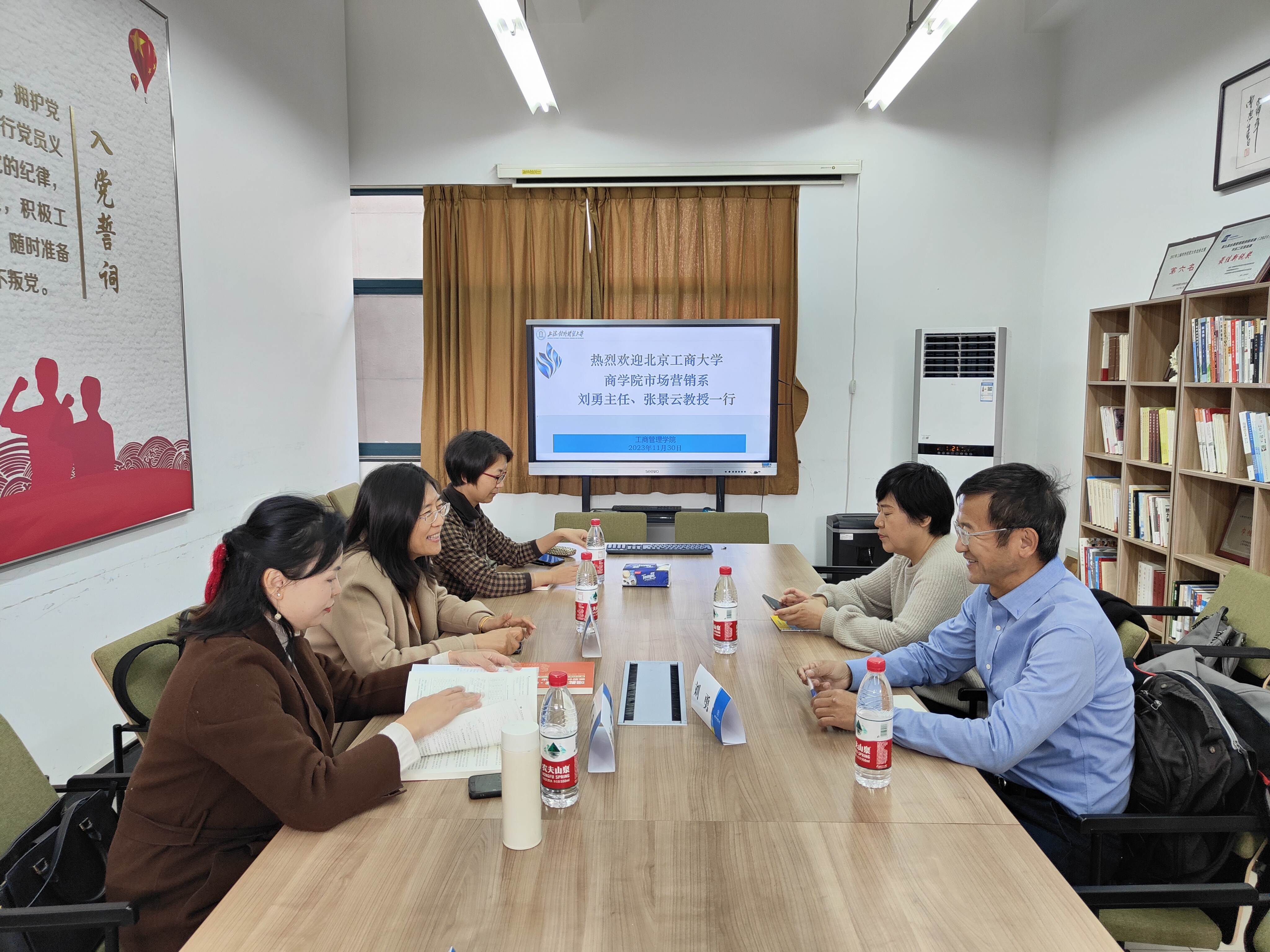On November 30, Associate Professor Liu Yong and Professor Zhang Jingyun from the Department of Marketing at Business School visited Shanghai University of International Business and Economics for a significant exchange activity. This event aims to enhance collaboration between the two universities in marketing and jointly explore innovative advancements in digital transformation, think tank development, case teaching methodologies, and incentive mechanisms.

During the morning symposium, Professor Jiang Xiuzhen, Dean of the School of Business Administration and Director of Development Planning at Shanghai University of International Business and Economics, warmly welcomed Associate Professor Liu Yong and Professor Zhang Jingyun. She noted that both institutions share a strong foundation in marketing cooperation and expressed hope that this exchange would further solidify their partnership while promoting advancements within the marketing discipline. The symposium was also attended by key faculty members including Professor Xie Peihong (Director of Marketing), Associate Professors Li Bo (Party Branch Secretary), Deng Shichang (Deputy Director), Shi Nan (Executive Director of Nantai Brand Development Research Institute), Sang Hui, and Liu Xin.

In the afternoon forum, both parties engaged in comprehensive discussions regarding recent developments in digital transformation, think tank construction, case development strategies, and incentive mechanisms. Regarding digital transformation, they explored how big data analytics and artificial intelligence can enhance marketing efficiency and precision. In terms of think tank construction, they exchanged insights on establishing a regionally or internationally influential marketing think tank. For case teaching methodologies, discussions focused on encouraging educators to develop impactful teaching cases while creating influential domestic and international case databases that effectively integrate with professional practice for enhanced learning outcomes. Concerning incentive mechanisms, they deliberated on establishing productive frameworks designed to stimulate enthusiasm among faculty members as well as students.

Through these exchanges, both departments have fostered closer ties within their respective fields while broadening their professional perspectives through mutual learning experiences.

This collaborative initiative not only strengthens friendships between the two institutions but also offers new ideas for future growth within their shared field of marketing. Both sides affirmed their commitment to ongoing cooperation aimed at advancing marketing disciplines together while contributing to cultivating exceptional talent in this area.
